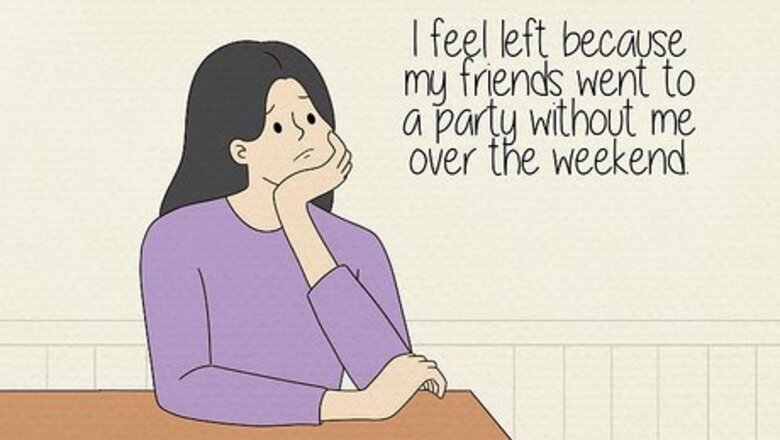
views
Acknowledge your feelings.
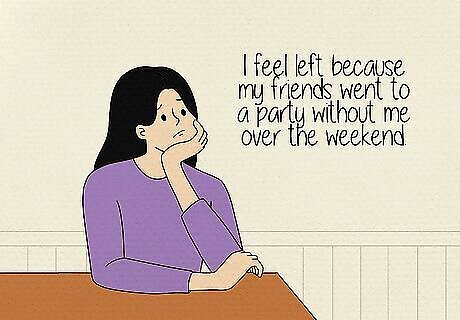
Rather than ignoring your emotions, recognize them. Feeling left out is never fun, and while it may be easier to push unwanted emotions aside, it’s better to acknowledge and feel them. Allow yourself to feel bad for a while. Let yourself cry or mourn something you wanted to be a part of. Acknowledging your feelings can help you to move on and cope with the rejection. Take time to identify why you feel left out, how it makes you feel, and why it makes you feel that way. For example, “I feel left because my friends went to a party without me over the weekend. I feel betrayed and sad because it makes me think they don’t like me.” Try writing about how you feel in a journal. If you don’t like to write, drawing or playing music to reflect on your feelings can also help.
Do something that makes you happy.
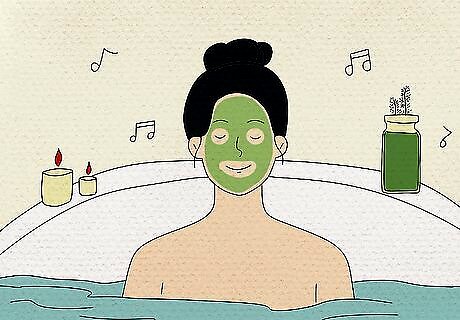
One of the best things you can do is improve your mood. Try to move past the situation by doing an activity you enjoy or that will make you smile. Dwelling on what happened or how it made you feel can actually make you feel worse. So, find something new to focus on, like watching a movie, listening to music, going for a walk, or shopping. For instance, say you’re upset that your friends didn’t invite you out on the weekend. Instead of worrying about what they’re doing without you, spoil yourself with some self-care! Light some candles, put on a face mask, fill the bathtub, and sink into some bubbles with a good book.
Breathe to calm yourself.
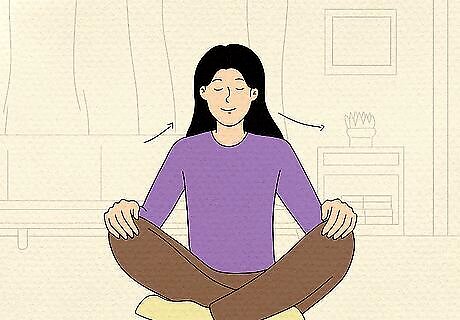
Easing your nerves can be as easy as taking a few deep breaths. Rejection can be upsetting and stressful. Research shows that taking just a few minutes to practice deep breathing can reduce stress and promote calm feelings. So, when you feel left out, take a deep breath and know that you will be okay. Practice deep breathing by taking a slow, deep breath while counting to 5. Then, hold your breath while counting to 5 again. Slowly exhale for another count of 5. Repeat this pattern until you feel calm. Similarly, doing yoga and meditating regularly can help calm your nerves and put you in a better state of mind.
Use positive self-talk to encourage yourself.
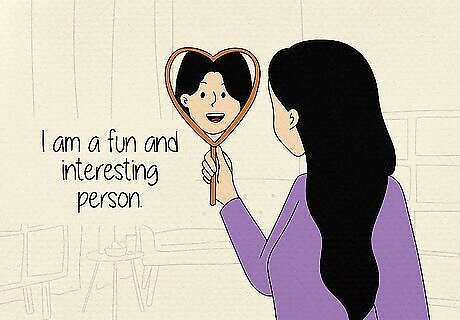
Reminding yourself how amazing you are after rejection can boost your mood. Being left out can cause you to feel sad and get down on yourself. Using positive self-talk can help you combat these negative feelings and feel better after being rejected. Take a few moments to look in the mirror and say something encouraging to yourself. Say something you believe or want to believe about yourself. Here are some positive affirmations to get started: “I am a fun and interesting person.” “I am a good friend.” “People like me.” “People enjoy spending time with me.”
Take good care of yourself.
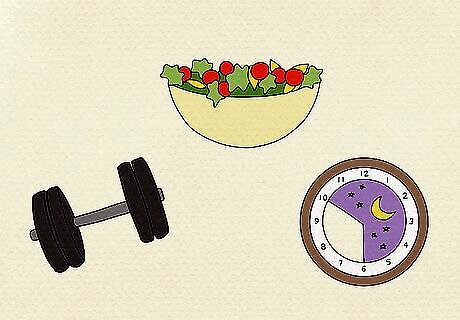
Caring for yourself can make you feel loved rather than rejected. Why wait for others to care for you when you can care for yourself? Try cooking yourself a nice meal, taking a long bubble bath, or working out. Whatever makes you feel loved and accomplished, do it! By taking care of your body, you’re caring for your mind and helping improve your mood. Here are some other ways you can take care of yourself every day: Aim for 30 minutes of exercise per day. Eat a balanced diet of healthy whole foods like fruit, vegetables, whole grains, and lean proteins. Get 8 hours of sleep per night.
Meet new people.
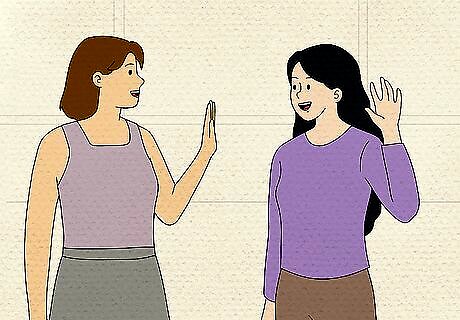
Sometimes, making new friends is the best way to move on. Try striking up a conversation with someone new if you feel lonely at a social event, or join chat rooms online to meet new people with similar interests. The more friends you make, the less lonely you’ll feel! Try making friends by: Smiling and greeting others Starting conversations Asking questions about people to get to know them Being a good listener Being kind and thoughtful Showing a genuine interest in what others have to say
Plan social outings yourself.
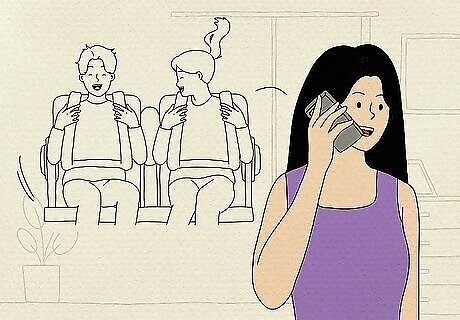
Scheduling activities with your friends can help you stay in the know. If you think you’re being left out because of your own schedule or responsibilities, ask friends to hang out on your terms. Who says only one friend can make fun plans? Think of something you’d like to do with your buddies, then call them to see if they’re free to join. This is a great way to show others that you want to be a part of their lives and social circle. If your busy schedule has interfered with doing things with your friends before, ask a friend to run errands with you or join you in something you do every day, such as going to the gym. Do your best to make plans with friends but know when to stop asking. If your friends refuse several times, they might not want to hang out. Rather than pursuing this dead end, put your energy elsewhere and try making new friends who want to hang out with you. EXPERT TIP Rebecca Tenzer, MAT, MA, LCSW, CCTP, CGCS, CCATP, CCFP Rebecca Tenzer, MAT, MA, LCSW, CCTP, CGCS, CCATP, CCFP Clinical Therapist & Adjunct Professor Rebecca Tenzer is the owner and head clinician at Astute Counseling Services, a private counseling practice in Chicago, Illinois. With over 18 years of clinical and educational experience in the field of mental health, Rebecca specializes in the treatment of depression, anxiety, panic, trauma, grief, interpersonal relationships using a combination of Cognitive Behavioral therapy, Psychodynamic therapy, and other evidence-based practices. Rebecca holds a Bachelor of Arts (BA) in Sociology and Anthropology from DePauw University, a Master in Teaching (MAT) from Dominican University, and a Master of Social Work (MSW) from the University of Chicago. Rebecca has served as a member of the AmeriCorps and is also a Professor of Psychology at the collegiate level. Rebecca is trained as a Cognitive Behavioral Therapist (CBT), a Certified Clinical Trauma Professional (CCTP), a Certified Grief Counseling Specialist (CGCS), a Clinical Anxiety Treatment Professional (CCATP), and a Certified Compassion Fatigue Professional (CCFP). Rebecca is also a member of the Cognitive Behavioral Therapy Society of America and The National Association of Social Workers. Rebecca Tenzer, MAT, MA, LCSW, CCTP, CGCS, CCATP, CCFP Rebecca Tenzer, MAT, MA, LCSW, CCTP, CGCS, CCATP, CCFP Clinical Therapist & Adjunct Professor Discuss feelings openly if you lack a phone and feel left out. If you feel left out because you don't have a cell phone, talk to your friends about how you feel. Also use other ways to communicate like email or social media. Organize hangouts that don't need cell phones, and do activities together to stay close with your friends.
Know that rejection is a small part of life.
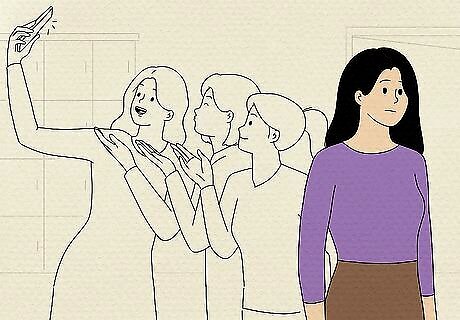
Everyone feels left out now and then—it’s normal! Feeling left out usually results from being excluded or rejected by a group of people you want to like and accept you. While feeling left out isn’t ideal, it's something everyone experiences—you’re not alone. Rejection is temporary, and you won’t feel it all the time. It’s normal to feel pain when you’re excluded from something because we all crave a sense of social belonging. We’re social creatures, and we experience pain or sadness when our needs are unmet. Recent research has found that your brain processes pain from rejection the same way it would process physical pain, such as having a broken arm. Social rejection can bring on feelings of anger, anxiety, depression, sadness, and jealousy.
Be realistic about the situation.
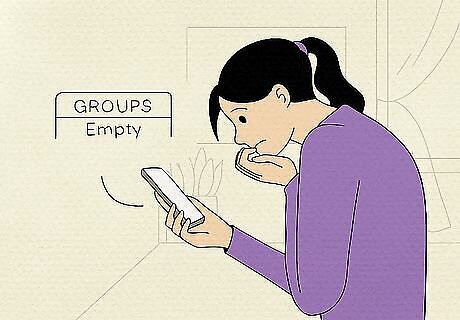
Sometimes, circumstances aren’t always how they seem. While there’s no denying your feelings of being left out, consider if you’re jumping to conclusions. Look at the situation from all angles to determine why and how you feel rejected. Try doing the following to get an idea of the big picture: Look for evidence that you’ve been left out. Have you purposefully been left out of a group text? Are people sitting away from you during lunch? Ask yourself if there’s any other reason someone acted this way. Could they have forgotten to add your number? Did they not see you in the lunch room? Ask an unbiased person (someone not in the situation) what they think about the behavior.
Talk to your friends about your feelings.
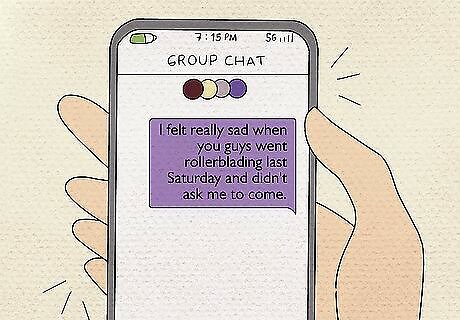
Telling those who rejected you how you feel may help clear the air. Sometimes, people may make you feel left out without realizing it. If you feel comfortable, talk to them about how their actions made you feel. Then, actively listen to what they have to say. You never know—it may just be one big misunderstanding. Try saying something like, “I felt really sad when you guys went rollerblading last Saturday and didn't ask me to come. I know I was tired Friday night, but I was up for doing things on Saturday, and it wasn't until Ben told me you guys were out that I knew I hadn’t been asked to come. I felt pretty left out. Was there a reason you didn't think to ask me too?” “I loved the party we went to last week, but I felt abandoned when you and Claire left the conversation. That new guy was not interested in talking to me, and when I looked for you, I couldn't find you or Claire anywhere. I felt really left out because I didn't know anyone else.”
Reach out for help.
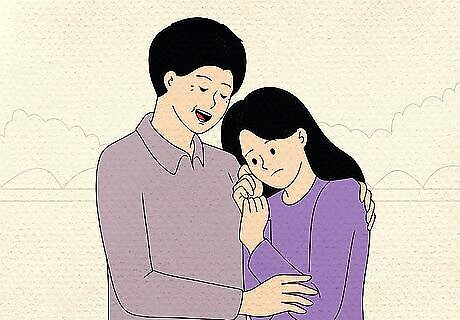
If you continue to feel lonely, ask someone you trust for guidance. Telling a supportive friend, family member, or therapist about how you feel is a great way to release built-up emotions and deal with rejection. Just because one friend has left you out, it doesn’t mean everyone in your life will—people do care about you! Open up about what’s troubling you because you never know who can lend a helping hand.


















Comments
0 comment